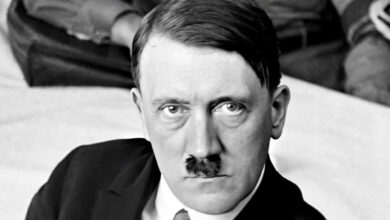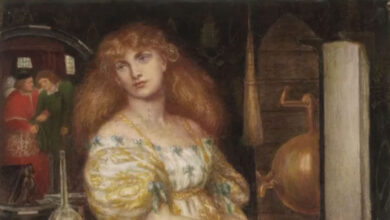Podcast: Play in new window | Download
Subscribe: Spotify | Amazon Music | Youtube Music | RSS
Napoleon Bonaparte was born in Ajaccio on the Mediterranean island of Corsica on 15 August 1769 which came under French rule the same year. After completing his education in France, he joined the military and became an artillery officer in 1785 at the age of only 16.
When the French revolution began in 1787 Napoleon sided with the revolutionaries and in 1793, he was promoted to the rank of Brigadier General. He also became a valued military advisor to the Directory, a five-member group that had been given executive powers under the new 1795 French constitution. Later in the same year, Napoleon put down an insurrection against the National Convention in Paris and was lauded a hero for saving the republic along with which came not only fame but considerable wealth. He was also given the command of French forces in Italy. At around the same time Napoleon became romantically involved with Joséphine Tascher de La Pagerie and the couple were married on 9 March 1796. Shortly afterwards, Napoleon headed for Italy and won a series of battles against the Austrians in the North of the country.
After negotiating the peace settlement between France and Austria known as the Treaty of Campo Formio in 1797, the following year, Napoleon attempted to conquer Egypt, but he was unsuccessful having been defeated at the Battle of the Nile by British forces under the command of Horatio Nelson.
Increasing unrest in France compelled Napoleon to return home in 1799 and upon his arrival in France, he determined that popular opinion had turned against the Directory and that it was an opportune moment for personal gain. He joined a plot to overthrow the Directory which upon its conclusion effectively brought about the end of the French Revolution. A new government was formed, a Consulate, consisting of three consuls. When Napoleon became First Consul, he was given the title for life and thus became the new leader of France. He wasted no time in setting about a series of reforms. He overhauled military training, centralised government and reorganised the banking and education systems. Systems that remain in place to this day in France.
Peace between France and Austria was never going to last too long and so it was that in 1800 France once again finds itself at war with Austria with Napoleon winning the decisive Battle of Marengo which resulted in France becoming the dominant power in continental Europe.
Up until this point, Napoleon had visions of expanding its territory even further around the globe but running a republic the size of France is expensive and Napoleon was starting to run out of money. This resulted in him selling the Louisiana Territory to the United States in 1803 an action that put an end to any thoughts of a French empire in North America.
On 21 March 1804, the new French civil code, known as the Napoleonic Code, was enacted, which clarified and streamlined French law. At the same time, Napoleon determined that he could put an end to the endless challenges to his position from Royalists by replacing the Consulate and so he declared that France was now a hereditary empire. He also declared himself to be France’s first emperor, Napoleon I, on 18 May 1804. He was consecrated emperor of France by Pope Pius VII in Notre-Dame Cathedral on 2 December the same year.
On 21 October 1805, at the start of what became known as the Napoleonic wars, the French were dealt a crushing blow when Napoleon’s fleet was defeated by the British under Nelson at the Battle of Trafalgar. From this point forward Napoleon decided to concentrate his efforts on land battles instead. These were more successful and were fought against Britain’s allies, Russia, Austria, Sweden and Prussia who had all joined together to form a grand alliance. Napoleon won victories at Ulm and Austerlitz in 1805, Jena and Auerstädt in 1806 and Friedland in 1807. The resulting treaties left most of continental Europe either directly under the control of France or allied to it by treaty.
One of the problems associated with a hereditary title is that you also have the responsibility to ensure that heirs are produced. Unfortunately, Joséphine did not bear Napoleon any children and so in 1809, the couple was divorced. Napoleon almost immediately married Marie-Louise, the daughter of the Austrian emperor and she presented him with a son on 20 March 1811, Napoleon François Joseph Charles Bonaparte, who would become the disputed Emperor of the French, Napoleon II, for a few weeks in 1815. He would end up spending most of his life in Vienna and was known in Austria as Franz, Duke of Reichstadt. He died of tuberculosis on 22 July 1832 at the age of only 21.
As emperor of most of Western Europe, one of the policies that Napoleon enacted was to forbid trade with Britain. However, Tsar Alexander I of Russia refused to abide by this and so Napoleon decided that he had no choice but to invade Russia. By September 1812 his forces had reached Moscow, but the city had already been abandoned and was largely destroyed by fire which broke out the same day as the arrival of the French forces. What happens next is considered one of the greatest military disasters in history as Napoleon ordered a retreat. The problem with this is that it was now October and the plains across which Napoleon’s forces needed march were covered in snow. Of the 600,000 troops that set out with Napoleon as part of his Grand Army in June, only 10,000 were deemed fit for combat by November.
A defeat of another kind awaited just around the corner for Napoleon. The Battle of Leipzig which occurred in October 1813 resulted in the loss of French power in Germany and Poland. With Napoleon withdrawing to the Rhine, Allied forces invaded France and Paris was captured on 30 March 1814. This was the final straw for France’s leader. He was forced to abdicate on 6 April and was exiled to the island of Elba off the coast of Italy.
Not really accepting that he had been beaten, Napoleon once again managed to raise an army and escaped Elba with a plan to put himself back in charge. However, his efforts would only last for 100 days as on 18 June 1815, his defeat was absolute against British and allied forces under the command of the Duke of Wellington at the Battle of Waterloo. Four days later Napoleon was returned to exile, this time to the island of St. Helena in the South Atlantic.
The British stationed a small garrison of soldiers on St. Helena and on the nearby otherwise uninhabited island of Ascension to prevent any escape attempt. In December 1815, Napoleon was moved to Longwood House on St. Helena which had fallen into disrepair and had become damp and was generally an unhealthy place to live.
By February 1821 Napoleon’s health had begun to decline rapidly and he died at Longwood House on 5 May 1821 at the age of 51. Although Napoleon himself wanted to be buried on the banks of the River Seine, the British determined that he should be buried on St. Helena. However, in 1840, King Louis Philippe I of France petitioned the British government to allow Napoleon’s remains to be returned to France. The petition was granted and on 15 December 1840, a state funeral was held in Paris. He was finally laid to rest in 1861 when his remains were entombed inside a Russian red quartzite sarcophagus which was placed in the crypt under the dome at Les Invalides.
Podcast: Play in new window | Download
Subscribe: Spotify | Amazon Music | Youtube Music | RSS




